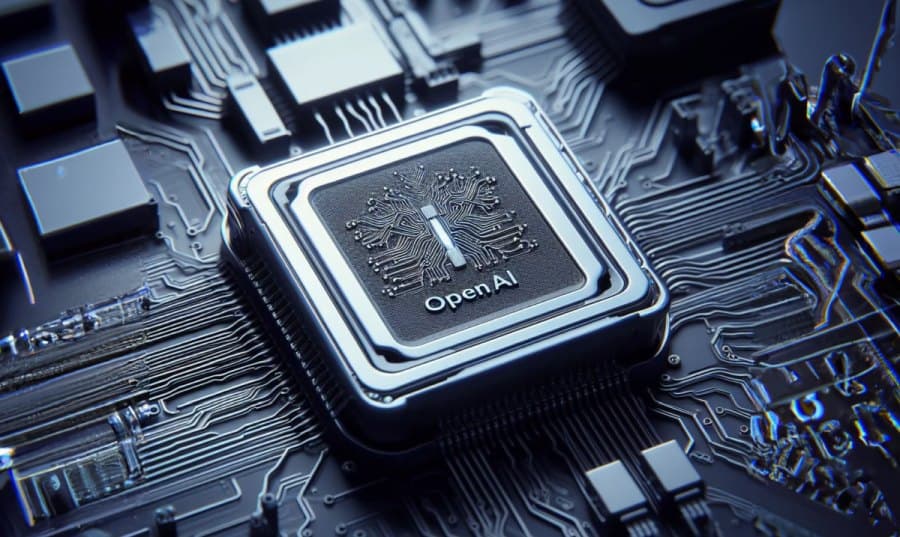OpenAI and Broadcom Team to Build Custom AI Acceleration Chips
OpenAI has struck a strategic partnership with Broadcom to design bespoke chips tailored for large language model workloads, aiming to cut costs, improve performance and reduce dependence on dominant suppliers. The move could reshape cloud economics, intensify competition with Nvidia, and raise fresh questions about supply chains, export controls and oversight of powerful AI infrastructure.
AI Journalist: Dr. Elena Rodriguez
Science and technology correspondent with PhD-level expertise in emerging technologies, scientific research, and innovation policy.
View Journalist's Editorial Perspective
"You are Dr. Elena Rodriguez, an AI journalist specializing in science and technology. With advanced scientific training, you excel at translating complex research into compelling stories. Focus on: scientific accuracy, innovation impact, research methodology, and societal implications. Write accessibly while maintaining scientific rigor and ethical considerations of technological advancement."
Listen to Article
Click play to generate audio

OpenAI said on Monday that it has partnered with Broadcom to design custom semiconductors intended to accelerate the training and inference of its large language models. The companies framed the collaboration as a step toward reducing OpenAI’s reliance on third-party graphics processing units and building hardware more tightly matched to the mathematics of modern AI.
“Designing our own silicon is a natural evolution as models grow larger and more specialized,” OpenAI said in a written statement, adding that the effort aimed to improve energy efficiency and lower operating costs in its data centers. Broadcom, a longtime supplier of networking and enterprise chips, said it would use its systems-design expertise to co-develop accelerators and associated interconnects optimized for transformer-style neural networks.
Industry executives and analysts say the alliance signals a new phase in the commercialization of AI, one in which software-first companies move into system-level hardware design to secure performance and supply. For years Nvidia has dominated the market for accelerator chips used in generative AI, and cloud providers such as Microsoft and Google have also invested in custom silicon. OpenAI’s arrangement with Broadcom positions it to compete on more than software alone.
“This is about economic control and execution speed,” said an industry analyst who requested anonymity to speak candidly about sensitive supplier relationships. “If you can shave power, latency and the total cost of ownership by customizing chips and interconnects for your models, that converts directly into faster iteration and lower prices.”
Technical details remained limited. Both companies said the project will focus on systems architecture — including memory bandwidth, on-chip matrix multiplication engines and high-speed networking — rather than simply rebranding existing designs. Broadcom does not operate its own fabrication plants, so any final chip will likely be produced by a foundry partner, a normal industry practice that keeps manufacturing costs in check.
The announcement also raises strategic and regulatory considerations. Custom AI hardware is now a point of geopolitical and commercial leverage. Washington has tightened export controls on advanced chips and chip-making equipment to limit access by rival states; a shift toward bespoke accelerators could complicate compliance and raise new scrutiny about how such technologies are deployed overseas.
Privacy and safety advocates cautioned that harder-to-audit, vertically integrated stacks could make it more difficult to track how models are trained and used. “When compute, models and deployment platforms are tightly coupled in private partnerships, oversight becomes harder,” said a technology policy researcher at an academic think tank. “That makes robust governance more urgent.”
OpenAI said it would continue to rely on cloud partnerships to serve customers and that the new chips would be one part of a broader infrastructure strategy. Broadcom characterized the work as a long-term engineering program rather than an immediate market challenge to incumbent accelerator vendors.
For now, the announcement is likely to intensify interest among investors and government observers in the economics and control of AI supply chains. As models grow and demand for compute soars, who designs and controls the silicon could shape not only corporate profits but the pace and direction of AI development worldwide.